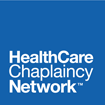When It’s Time to Say Goodbye: Introduction to Spiritual Care at the End of Life
Course Author: The Rev. Sue Wintz, M.Div., BCC
This course, When it’s Time to say Goodbye: Introduction to Spiritual Care at the End of Life, is written for students in clinical training programs of all disciplines including chaplaincy, graduate schools, and community faith, religious, and existential leaders who are new to end of life issues. Various aspects of end-of-life care will be presented and discussed, including the dying process and physiological changes, advance care planning, conflicts that may occur between dying persons and families, palliative care, and hospice. Issues of emotional and spiritual, religious, and existential distress will be identified as well as appropriate interventions, cultural, religious, spiritual, and existential practices, and care of the family.
By the end of this course the learner will be able to:
- Recognize and understand the physiological changes that occur during the dying process.
- Understand and articulate the different spiritual, religious, and existential beliefs about dying and death and articulate the appropriate interventions.
- Identify the issues of emotional and spiritual distress that are experienced by patients facing the end of life, articulate appropriate interventions and demonstrate their application.
- Understand the conflicts that can occur between the dying person, family/family of choice, and associated communities and articulate appropriate interventions.
- Articulate the role of spiritual, religious, or existential support, practices, and cultural norms in coping, dying, grief, bereavement, and after death care of the body.
- Summarize advance care planning documents and their use • Articulate knowledge of the history, current philosophy, and goals of palliative care.
- Explain the hospice concept, goals of care, and distinguish its differences from palliative care.
- Understand how to participate effectively as a community faith leader in providing coordinated care with an interdisciplinary health care team at the end of life.
Course Outline
- Introduction
- Physiological process of death
- Emotional process of death
- Spiritual process of death
- Providing end of life care
- Conflict at end of life
- Advance care planning
- Hospice and palliative care
- Spiritual distress and pain
- Talking about death and dying
- Palliative Care
- Hospice
- Care after Death
- Summary
- References
Number of Continuing Education Hours: 35
Credit towards Board Certification Requirements: 1
Continuing Nursing Professional Development Contact Hours: 35
Aligns with the following Quality Indicators in What is Quality Spiritual Care in Health Care and How Do You Measure It? (HCCN. 2016).
- Process Indicator 2.B. All clients are offered the opportunity to have a discussion of religious/spiritual concerns.
- Process Indicator 2.C. An assessment of religious, spiritual, and existential concerns using a structured instrument is developed and documented, and the information obtained from the assessment is integrated into the overall care plan.
- Process Indicator 2.E. Families are offered the opportunity to discuss spiritual issues during goals of care conferences.
- Process Indicator 2.G. End of life and Bereavement Care is provided as appropriate to the population served.

